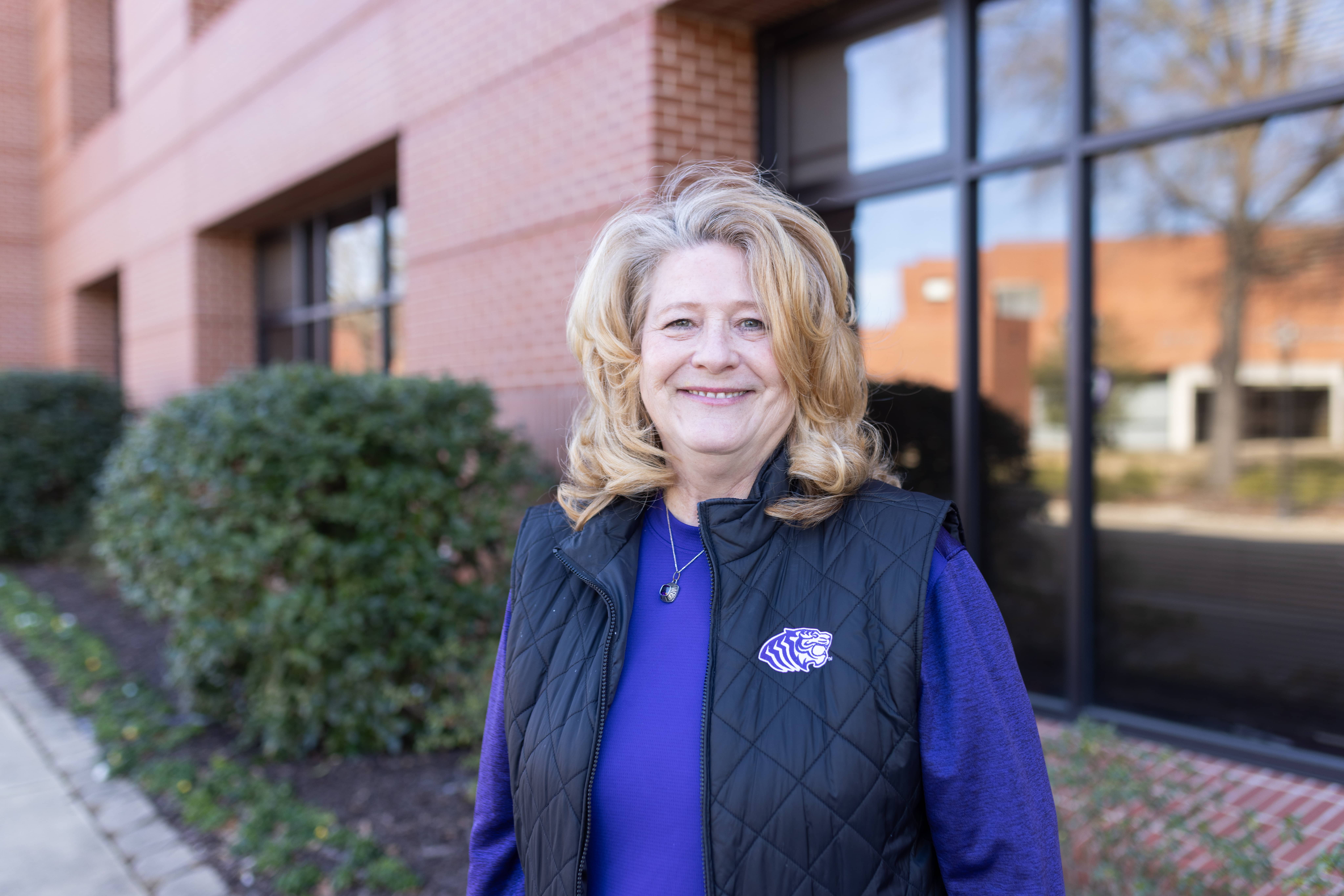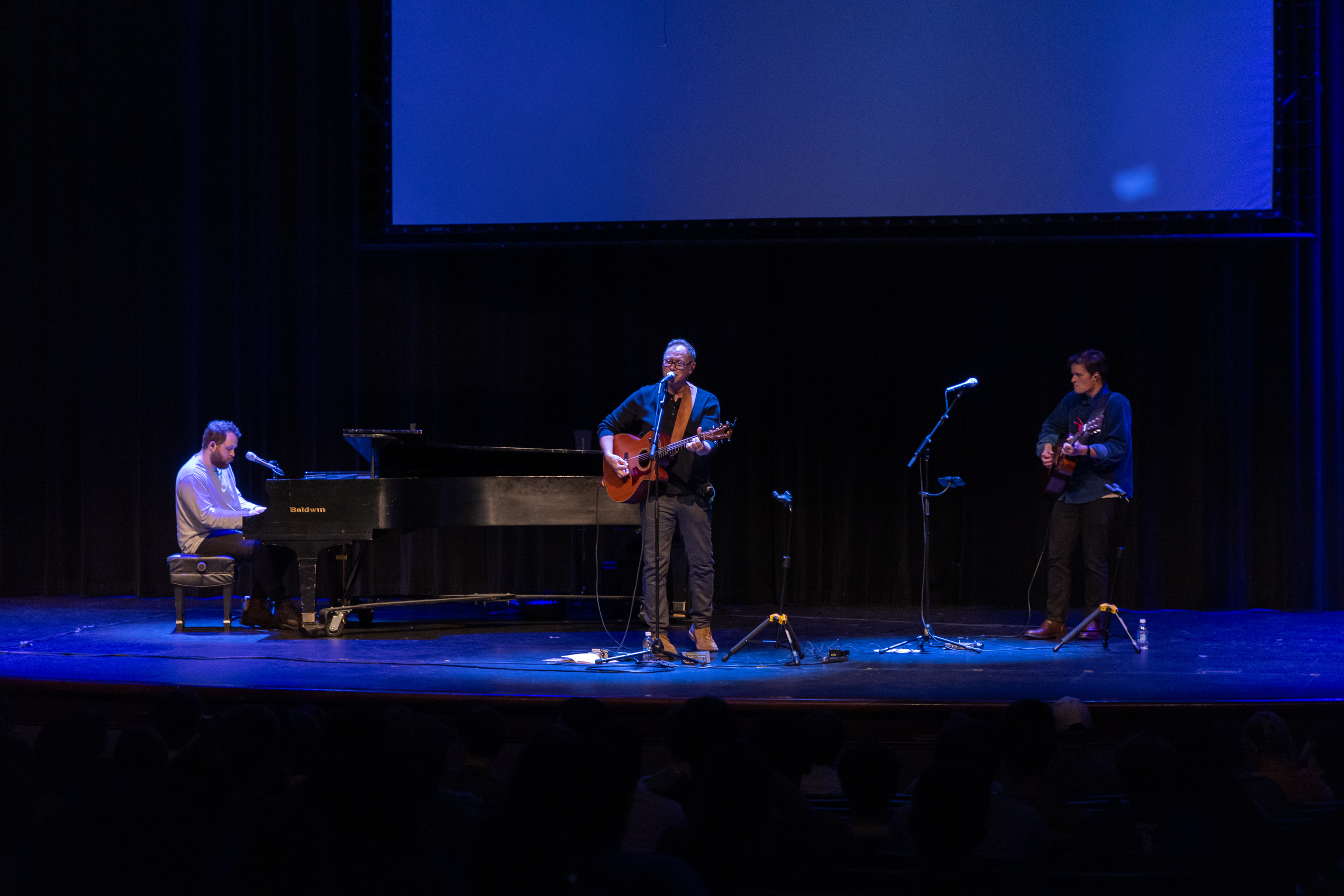David Owens, energy manager for Ouachita, knows it is possible to “change somebody’s life just by throwing a plastic bottle in a recycling bin.”
When entering his Lile 235 office students can see a picture of Richard, an employee at Arkadelphia’s Human Development Center, hanging on his bulletin board.
[quicktime]https://www.obusignal.com/video/goinggreen.mov[/quicktime]
Because of the recycling bins in Evans Student Center and bins that are soon to be placed in resident halls, people like Richard can have a job at the center which trains mentally and physically handicapped people to do things such as work with recyclables.
“We’re giving people down the road jobs and helping them become productive people, and to help them feel good about themselves,” Owens said. “It’s all about those people and the excitement they get because we recycle.”
Seeing a smile on Richard’s face is one reward Owens gets from his job. He was hired to keep Ouachita on track toward better energy efficiency.
“I provide accountability for the different buildings at Ouachita,” Owens said. “The other part of my job is to help set those guidelines and make the environment at the university fit those guidelines.”
Hiring Owens was a step in the process of helping Ouachita take on a “go green” emphasis that was started last year by Brett Powell, vice president for administrative services.
According to Powell, after realizing energy bills were on the rise for Ouachita, the faculty looked for ways to lower energy consumption and save money.
Powell helped create a plan to encourage students, faculty and staff to turn off lights and equipment and to take shorter showers in the dorms.
“There’s been some interest in it and I think it has caught on a little bit,” Powell said. “I think we are getting better at it and getting more results from it.”
Then Ouachita came across a company called Energy Education that has worked with school districts and universities for about 20 years on becoming more conscious.
“[Ouachita] looked into the program and it fit in with exactly what we were trying to do; the same kind of energy conservation program that we were trying to put in place,” Powell said.
That is where David Owens came in; as part of the four-year contract Ouachita signed with Energy Education, Owens will manage the conservation program.
Owens wants to see Ouachita save money, considering the 17.4 percent rise in energy costs this summer, the highest increase the school has seen since 1990. Owens also wants to “make sure we are faithful stewards of the money that has been given to us by the students and donors. I’m providing a way to make sure we’re being financially responsible.”
He also wants to make Ouachita a “great place to be and learn about energy efficiency.”
The main thing Owens is asking students, faculty and staff to do is become conscious of their environment by making small adjustments to their lives.
“When you leave, just turn off a light; you’ll be surprised that if you’re gone for just one minute [how] you can save costs that way,” he said.
The best way to reduce energy costs is to control the heating and cooling in the buildings on campus; about 52 percent of Ouachita’s energy costs are heating and cooling, Owens said. But, he realizes that Ouachita cannot turn off the systems altogether.
“We want to make everyone comfortable,” he said. “We have to keep in mind that we have different kinds of classrooms, libraries and computer labs.”
In most buildings on campus the cooling systems turn on around 7:30 a.m. and will have the buildings at the right temperature by 8 a.m. The systems shut down around 5 p.m.
“Part of what I’m going to do is to schedule that coming on and going off so we can maintain comfortable environments while saving energy,” Owens said.
Owens will focus on Lile Hall, which is an older building with an older system, in order to make sure it stays within the guidelines. During the summer he said Lile was at a too-cool 66 degrees.
According to Owens, the new dorms will have built-in devices to help reduce energy consumption.
Owens hopes to not only tell students they should become more conscious of their environment but to teach them how to make small decisions everyday that could make a difference not only for others but for themselves.
“What we’re doing is to try to make it fun and easy,” Owens said. “If you turn off a light or a computer then maybe tuition won’t rise in the future.”
Students interested in helping in Ouachita’s conservation or recycling endeavors can contact Powell or Owens at powellb@obu.edu or owensd@obu.edu.




